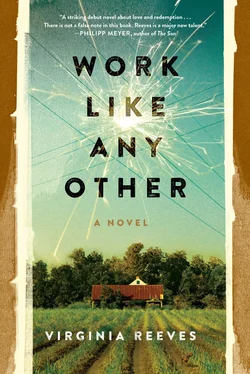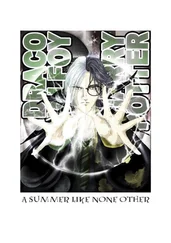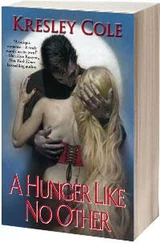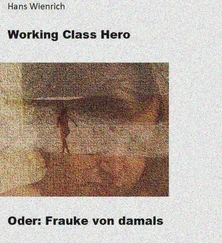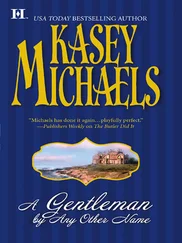Marie didn’t know how to bring him back.
It’s growing dark when a guard escorts me from the hospital. Nearly a month has passed, though it could’ve been a year. My time away feels long. Boyd, Hicks, and Vincent keep their eyes away from me as I come through the cell door. Reed’s bunk is empty, and a new fellow is in Ed’s spot. He looks up briefly — long enough for me to see the great swells and bruises on his face — and then he returns to the children’s book in his hands.
“Boy’s a trustee, now,” the guard says to my cellmates. “Hands off.”
This is the first I’ve heard of my new rank, but I’m not interested in challenging it.
I sit down on my bunk.
“Hey, Books,” Hicks says. “You hear that the warden sent Reed to a turpentine camp in the north? Worst camp you can get.”
I don’t respond.
“Listen, figure we might use this whole ordeal to all our gain.”
Boyd is looking at me, and Vincent, too. The new boy has raised his head, but he lowers it quick when Hicks shouts, “This don’t concern you, Fresh.”
“Tried crawling into Hicks’s bed his first night here,” Boyd explains.
He won’t last long, then.
“What sort of gain?” I ask.
Hicks smiles. “The simple sort. Just a little share of your trustee favors.”
“Such as?”
“Cigarettes and liquor.”
I smile this time. “Those aren’t part of the package.”
“But they turn their heads when it’s a trustee doing the business.”
“No.” I know that I’m above their reach now — wounded, healing, a trustee of the prison.
“Roscoe,” Hicks is saying, “you best—”
“No.” My new scars are itchy against my uniform. “We know you can’t touch me, which means there’s nothing I owe you. Only gain I see for us in this cell is keeping clear of each other.”
“Can’t promise you safe passage through the yard,” Hicks warns. “Or sound sleep.”
“Yes, you can.” I have been wounded and brought back — a reprieve, but not an escape. I will force these bastards to step around me.
Vincent is the first to lie down, turning his back on us. He has always been the easiest to pacify. Boyd abandons the fight next, and I am left with Hicks above me, feet dangling, our short-term cellmate a guarded witness to my right, his eyes pretending to read the words in his silly book.
“Get out of your bunk,” I tell Hicks, pushing against his mattress from below. “I want this whole thing to myself.”
Hicks’s been sleeping over me since I arrived. I’m asking him to move above Fresh.
“Go to hell, Books.”
“I know how to make my injuries look new again,” I warn him. “All kinds of insults I could see you causing. Get me another stint in the hospital with my pretty nurse. Get you a stint in the doghouse. Maybe something else.” Ed is here with me, his voice in my throat, his hands clenched at my sides. “Get,” we say together, and Hicks jumps from his bunk, grabbing his linens, stomping like a fussy child the few steps it takes him to cross to his new bed. He uses Fresh’s knees like a ladder, crushing the book, digging heels into the flesh above the man’s kneecaps, deep enough to make him shout.
“Shut your fairy mouth,” Hicks says, bringing the toe of one of his boots into Fresh’s face, opening the cracks on his lips. A few drops of blood land on the pages of his book, and I think of those stains there forever, making their way into every new set of hands that checks out the book from the library. Fresh coughs and whimpers. I know that Hicks will deliver to Fresh the violence and anger he wants to deliver to me, that Fresh has become my surrogate, my dummy, my double, that I have chosen this for him, that it is as unfair as George Haskin’s singed body.
I am not ashamed.
Contrary to Hicks’s prediction, I sleep soundly that first night back in my cell, a new comfort lapping at me that I haven’t known in Kilby before.
I’Mgiven easy tasks in the dairy for the first few days, but Bondurant doesn’t care for exceptions, and he has me back in regular rotation quick. On Friday, I return to the library.
“Good to see you, Martin,” Rash says.
“Thank you, sir.”
He taps a book on his desk. It’s called Hunting Dogs , and it’s written by a fellow named Oliver Hartley. “Taylor’s getting impatient. You wouldn’t believe how angry he was to hear the news. Injury or not, he’s tired of waiting.”
I roll my shelving cart away, Hartley’s words open on top of the sorted books. There are chapters on hunting coon, opossum, skunk, mink, coyote, fox, squirrel, rabbit, and deer, but none on the hunting of men.
I learn that once a dog knows how to tree squirrels, I should take him to woodchuck country, and that once he can tree woodchuck, I “may rest assured that he will tree a ’coon if he finds a trail.” If it’s summertime, I should take my dog “where ’coons abide and turn him loose.”
I shelve the dictionaries. I shelve the host of Bibles we store in the 200s and a few books about psychology in the 300s. Hartley tells me that a successful trainer in Minnesota feels strongly that pups should not start their training until they are twelve to fifteen months old. Here is one of Ed’s books on sailing ships, filed in with the 300s — the ocean reaches far across Dewey’s system — and I swear the book is water-warped at its edges. He has been gone about two months, but his books continue to surface throughout the prison. Rash said Chaplain brought in this last one. “He found it under a stack of Bibles. Isn’t Mason back now?”
“No. No one can find him.”
I can see him back in London, Yellow Mama shaking him as he slips the diamond bracelet from a noblewoman’s wrist, there on his English street. The current is touching the soles of his feet, skittering up his legs, through his guts and his heart, out his arms, down into his hands. It flicks his fingers.
“Oh!” the woman yells. “Help! I’m being robbed!”
But Ed is gone. He’s too quick to be caught in the streets. “Damn,” he’s saying, steadying his walk around some narrow corner.
I keep expecting his return. I see him rowing in on a wave that he’s trained on the oak grove. He’ll coast up to the front doors, pulling the oars into the small boat he fashioned himself, a wooden craft, shiny hulled, clear-lacquered to show the grain. “I was about halfway across that ocean when I decided I better turn around,” he’ll say. The guard in the tower will lean his head out the window and say, “Row on over the wall, Ed. They’ll be happy to see you.”
That wave will spill out around the tower. It’ll slosh against the brick of the administration building and then against the cement of the wall. It’ll loosen the tar, rattle those cracks, inch them wider. The fire in those wires will short, and Ed will come slipping over the top, poured out in a gush that dampens the dirt yard.
Because I’ve never seen it, the ocean I know is capable of these things.
“They still using my chair?” Ed will ask, stepping clear of his boat.
“Yes,” we’ll tell him. “All the time.”
“I can’t even feel it anymore.” He’ll hold his steady hands out for evidence.
Ed will go back to the woodshop. He’ll start making those cradles again. We’ll mount his boat from the rafters in the mess.
He has sent one letter. It was waiting for me when I left the hospital: No one home. Left the letters on the porch. Nice place. Your friend .
I picture that bundle of letters coming untied. The first envelope waves a bit. It opens and its pages shuffle loose. Then the next. And the next. The paper is like smoke. It curls and loops and makes for the sky, where it breaks apart and disappears. When Marie comes home from her day at the school (for she is teaching, again — I see her there), a boy version of Gerald at her side, only the twine is left, a loose, ratty cord. She’ll tie it in a circle and slide it on the boy’s wrist because he asks her to. Later, it will hold up her hair.
Читать дальше
